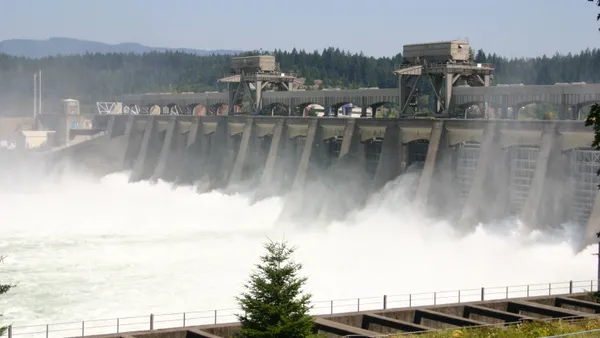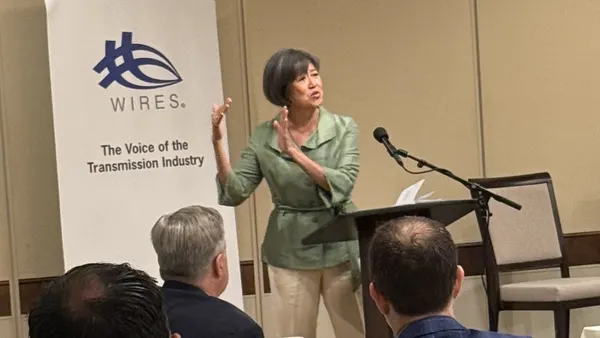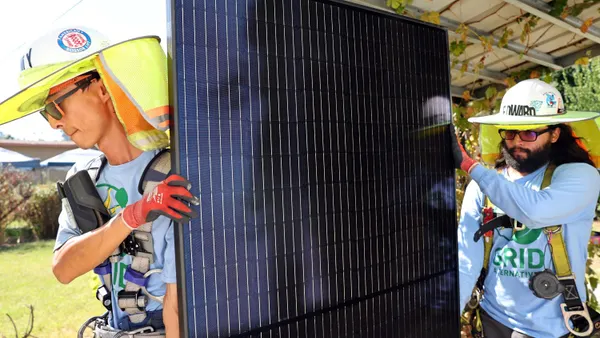Dive Brief:
- Three utilities in the Midwest will retire power plants by the end of the year, shuttering about 600 MW of varied generation, for a wide range of reasons encompassing environmental and economic concerns, Platts reports.
- The facilities include coal, natural gas and biofuels plants, and have been targeted for closing because of age or low natural gas prices. The Obama administration’s clean air regulations also played a part.
- DTE Energy, Alliant Energy and Westar Energy have all announced plant closings.
Dive Insight:
The Midwest will lose 600 MW of generation by the end of this year for varied reasons, which include low natural gas prices, emissions regulations and age.
The Obama administration's Clean Power Plan was behind Alliant Energy's decision to close a 200 MW coal station, and Westar Energy's choice to shutter 350 MW of coal-gas generation. The regulation calls for a nationwide 32% reduction in carbon emissions from power plants by 2030 below 2005 levels.
A smaller 40 MW biomass facility run by DTE Energy will close down due to ramped up competition from natural gas, and will be replaced by renewable power.
Westar SVP of Generation John Bridson issued a statement saying the coal-gas plant "served Kansas customers well for more than a half century, decades longer than ever imagined. ... However, to invest the tens of millions of dollars to upgrade this equipment to keep it operating safely doesn't make sense. People are using less energy, so we no longer need these old, small generating units to meet peak electrical demand."
Pointing to the Clean Power Plan, Bridson said "we knew environmental regulation was on the horizon. Now that it’s here – and more stringent than expected – we have to evaluate when to invest and update our equipment."
This decision follows a gradual move from utilities to shift from coal-fired generation to a cleaner fuel mix composed of natural gas and renewable energy. Utilities are not fighting the latest EPA regulations, according to a Wall Street Journal report, instead focusing their efforts on compliance and revamping their fleets to run on natural gas, wind and solar.













